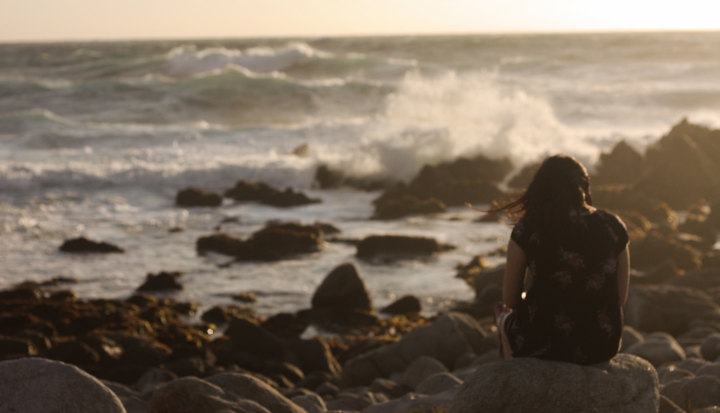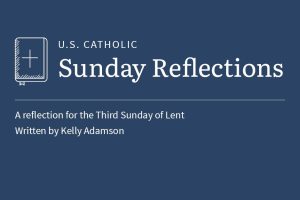“Secure your oxygen mask before helping others.”
Many of us don’t even pay attention to these words anymore. We’re old hands at flying, so while the flight attendants are showing us how to tighten the straps on life jackets or follow the emergency lights to the nearest exit, we’re reading, looking out the window, talking to our friends, or listening to music on our devices.
But I remember the first time I heard those words. I was flying on a small propeller plane to North Carolina with my mom to attend the wedding of a family friend. And I was young enough to have the following thought flit across my mind: “But what if something bad happens and I can’t get to my oxygen mask and my mom is too busy getting her own on to help me?”
As adults, it can seem like we hurry from crisis to crisis, never being able to pause to catch our breath. Children, spouses, work obligations—the litany of things to do and people clamoring for our attention is never-ending. Who has time to put their own oxygen mask on when there’s a big deadline coming up at work, the baby needs to be fed and changed (and fed and changed and fed and changed…), the dog needs to be walked, and you desperately owe your wife a date night?
This feeling of guilt—like you need to help others before you help yourselves—gets even worse when you work in one of the “caring” professions. For doctors, nurses, social workers, priests and ministers, chaplains, and other nonprofit workers, there is always someone who is worse off, someone who needs your time and talent more. For every hour of the day you take off, there is someone who doesn’t receive the care they so desperately need.
In divinity school, we talked a lot about the idea of self-care. As students, most of whom are planning on going into one of the vocational paths mentioned above, it is doubly easy to put off taking care of yourself. There’s always time to relax later, right? After finals, after our internships at a parish, after we finish tutoring elementary schoolers in reading, after we spend time maintaining our personal relationships. But if you don’t make it a focus, it’s easy for “later” to never come.
Self-care is taking the time to realize that if you are feeling burned out or stressed or anxious, everyone else you come in contact with is going to be affected as well. You can’t minister to others when you are barely hanging on by a thread yourself.
My boss in college explained it this way: Imagine you go to work on a day when you have 1,000 other things going on. You’re stressed and anxious and tired. So when someone comes to ask you a silly question—one you’ve heard a million times before—you snap. You are rude, or brusque, or maybe just a little bit unhelpful. That person is then frustrated after their interaction with you, so when they leave the building, they slam the door right in the face of someone else behind them. That person then carries that bad feeling with them to their next class, and so on and so on. If, on the other hand, you are in a mental space where you can deal with their stupid question with a smile and acknowledgement of the other person, then that person is feeling really good when they leave. They hold the door open for the person behind them. Our actions and feelings don’t just affect ourselves. They ripple outward to the people around us in a neverending cycle of empathy or disdain.
Self-care, or self-empathy, is making sure you have the mental resources at your disposal to cope with the inevitable disappointments, stresses, and stupid questions. At its most trite, self-empathy is being able to say things like, “I really need to take a break for a couple hours and watch Netflix.” Or closing the bathroom door on the world and taking a long bubble bath. Or maybe it’s knowing that taking a walk in the middle of day changes your perspective and makes you feel better, and having the self-discipline to stand up and leave your desk, no matter what’s calling you back to work. More profoundly, self-empathy can be knowing when to take a vacation, when to go on retreat, when to forgive or let negative feelings go, or sometimes just being able to say “no.”
The Christian tradition focuses so much on love for the other. “Love your neighbor as yourself.” “As you did for the least of them, so you did for me.” “Love your enemies.” Sometimes we forget that it is also important to show love for ourselves. Even Jesus practiced self-empathy: He made time to go away from the crowds and pray over and over again in the gospels, most famously in the garden of Gethsemane, right before his arrest. The Bible may be telling us to feed the poor, love our neighbor, and take care of our children, but it is not telling us to kill ourselves doing so.
In her interview with U.S. Catholic, Sister Joyce Rupp puts self-empathy in perspective to our spiritual lives. She writes about the importance of putting aside guilt—because we can’t do everything and be everywhere—and starting to build in small spiritual practices in seconds of silence. In the shower. On the train. While walking the dog.
It can be so incredibly difficult to tell yourself that it’s okay to take care of yourself. It’s okay to put your own oxygen mask on first, even if people are asking you to do otherwise. Doing so only makes us better at helping others in the long run. Like Joyce Rupp says, we need to start building in these small moments of self-empathy and care, making sure we have the endurance to care for others in the long run.
This blog post is part of a series on compassion, based on Joyce Rupp’s work at the Institute of Compassionate Presence and her interview with U.S. Catholic. The print interview, titled “When help isn’t helpful,” appeared in the August 2015 issue (Vol. 80, No. 8, pages 18–22). An online excerpt from the interview, “A spirituality for busy people,” can be found here.
Image: Flickr cc via ashley rose,














